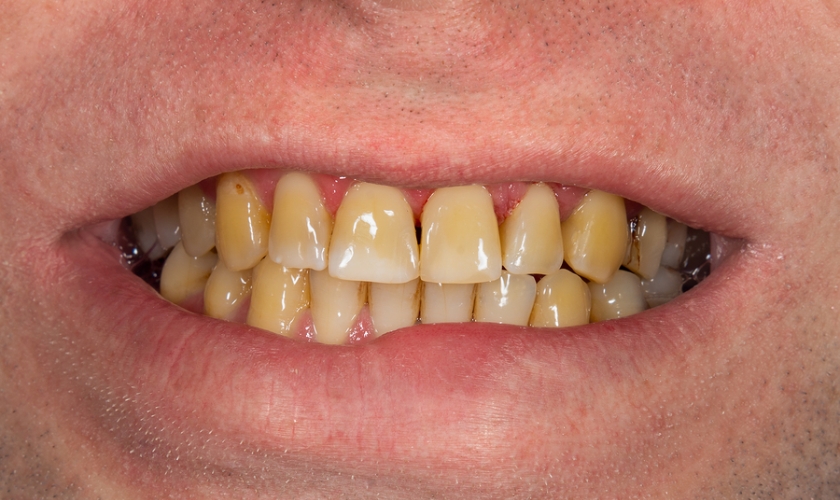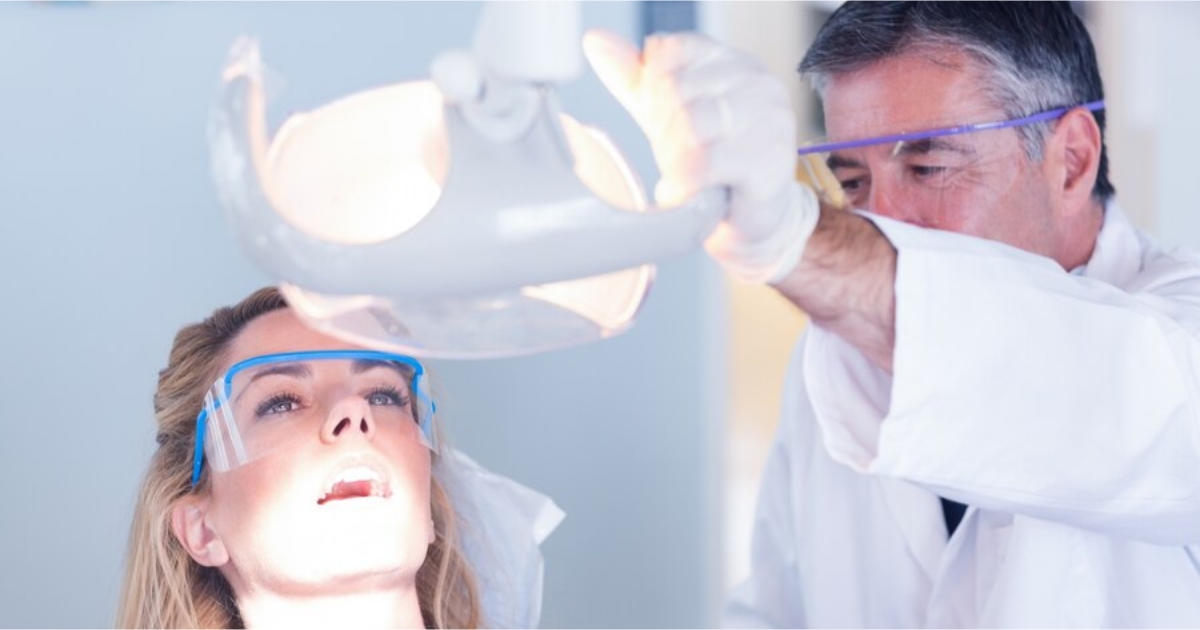Call: (630) 620-0929
The Science Behind Teeth Whitening: How It Works and Its Benefits


Smiling is contagious, but a smile with yellow or stained teeth can be embarrassing. Teeth whitening has become one of the most popular cosmetic dental procedures in recent years, giving people the confidence to flash their pearly whites without worry. But have you ever wondered how it works? In this blog post, we’ll dive into the science behind teeth whitening and its many benefits. Get ready to say cheese!
What Is Tooth Whitening And Why Is It Important?
Tooth whitening is a cosmetic dental procedure that involves removing stains and discoloration from the surface of teeth. It’s important because it can help improve the appearance of your smile, boost your confidence, and enhance your overall quality of life.
Teeth are naturally white when they first emerge, but over time they can become stained or discolored due to factors such as aging, smoking, drinking coffee or tea, and consuming certain foods or medications. Tooth whitening products work by using chemicals such as hydrogen peroxide or carbamide peroxide to break down these stains and restore the natural color of your teeth.
There are many different types of tooth-whitening products available on the market today. Some examples include at-home kits with trays or strips that you apply yourself, professional in-office treatments done by a dentist, and even natural remedies like baking soda or activated charcoal.
Regardless of which method you choose for tooth whitening, it’s important to follow proper safety guidelines and consult with a dental professional before beginning any treatment plan. With regular maintenance and care after treatment, however, tooth whitening can provide lasting benefits for both your oral health and general well-being.
Types Of Teeth Whitening Products
When it comes to teeth whitening, there are various types of products available in the market. Here are some of the most common types:
1. Whitening Toothpaste –
This type of toothpaste contains abrasive particles that help remove surface stains on teeth. However, they may not be effective for deep-seated stains.
2. Whitening Strips –
These thin, flexible plastic strips contain hydrogen peroxide or a similar bleaching agent and adhere to the front of your teeth for a specified period. They can effectively whiten teeth over time but may cause sensitivity.
3. Tray-Based Whitening Kits –
These kits come with custom-fitted trays that you fill with a whitening gel and wear for a specified duration each day at home. This method is highly effective, but it can take several weeks before results become noticeable.
4. In-office Professional Treatments –
Dentists use high-concentration bleaching agents and special light sources to whiten teeth quickly (often within an hour). It is considered one of the most effective methods but also one of the priciest.
It’s essential to consult with your dentist before choosing which type of product is best suited for you as he/she will be able to recommend what works best depending on your unique dental needs!
How Teeth Whitening Works
How teeth whitening works is a question that many people ask when they are considering getting their teeth whitened. Simply put, teeth whitening uses different techniques to lighten and brighten the color of your teeth.
The most common method of teeth whitening involves using hydrogen peroxide or carbamide peroxide as the active ingredient in a bleaching gel or paste. These ingredients break down into oxygen molecules which penetrate deep into the enamel and remove stains from within.
Another method of teeth whitening involves using light energy to activate the bleaching process. This technique is called “laser” or “light-activated” tooth whitening, where a special light is pointed at your mouth while you have a gel on your teeth.
Teeth Whitening can brighten stained, discolored, dull or otherwise unsightly looking smiles caused by things like tobacco use, aging, coffee intake and certain foods/drinks
It’s important to note that not everyone’s smile will respond equally well to these treatments – it all depends on factors like lifestyle habits such as smoking and drinking wine/coffee/tea/etc., genetics (some people just naturally have whiter/enamel-rich choppers), individual oral hygiene conditions etc
With proper care after treatment and consistent maintenance practices (such as avoiding dark-colored beverages for at least 24 hours after any dental work) – professional-grade tooth-whitening offers an easy way for anyone who wants brighter pearly whites!
The Benefits Of Teeth Whitening
Having a bright, white smile can have numerous benefits beyond just the aesthetic appeal. Teeth whitening is becoming increasingly popular among people of all ages as it offers a multitude of advantages.
Firstly, teeth whitening can boost one’s self-confidence and self-esteem. Having discolored or stained teeth can make individuals feel self-conscious about their appearance and may cause them to hide their smile. Teeth whitening helps in removing these stains and restoring the natural color of teeth which gives an individual more confidence to smile openly without feeling embarrassed.
Secondly, whiter teeth contribute to a more youthful appearance since tooth discoloration often comes with age. A brighter smile can convey healthiness and youthfulness which makes people look attractive and vibrant.
Moreover, good oral hygiene leads to overall better health which means that having your teeth professionally whitened not only makes your mouth look great but it also promotes oral hygiene by encouraging individuals to maintain regular brushing habits.
Opting for professional dental services ensures safety while achieving desirable results at the same time because over-the-counter products might lead to gum sensitivity or enamel damage if used incorrectly.
Getting one’s teeth professionally whitened has significant psychological effects on an individual’s well-being apart from improving physical appearances without compromising oral health standards.
The Bottom Line
Teeth whitening is a popular cosmetic dental procedure that provides numerous benefits. From enhancing your smile to boosting your confidence levels, teeth whitening can make a significant difference in your overall appearance and self-esteem.
There are various types of teeth whitening products available on the market today, each with its own set of advantages and disadvantages. However, regardless of the method you choose, it’s essential to consult with a qualified dentist before starting any treatment.
Teeth whitening works by breaking down stains on the enamel surface through chemical reactions or physical processes. While some people may experience sensitivity after undergoing this procedure, most patients report little-to-no discomfort during or after treatment.
If you’re looking for an effective way to brighten up your smile quickly and safely, teeth whitening might be just what you need! With proper care and maintenance following treatment, you can enjoy a stunning white smile that lasts for months or even years. So why not book an appointment with your dentist today and see how they can help transform your smile?





